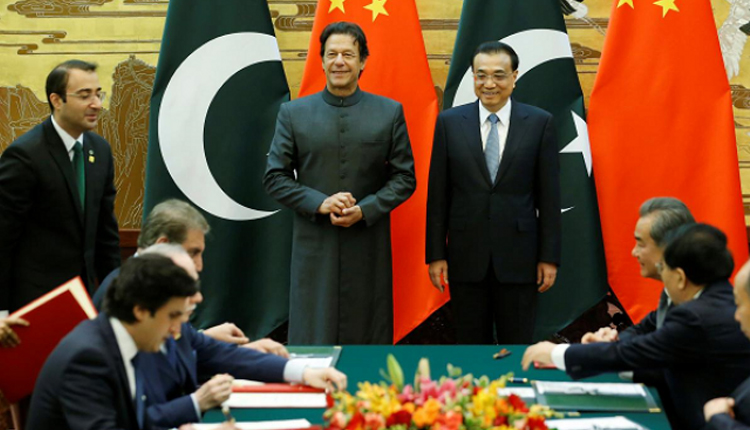Pakistan’s foreign reserves have plunged 42 percent since the start of the year and now stand at about $8 billion, or less than two months of import cover.
Last month, Pakistan received a $6 billion rescue package from Saudi Arabia, but officials say it is not enough and the country still plans to seek a bailout from the International Monetary Fund (IMF) to avert a balance of payments crisis.
It would be Pakistan’s 13th rescue package from the multilateral lender since the late 1980s.
Speaking to reporters in Beijing’s Great Hall of the People following Khan’s talks with Li, Chinese Vice Foreign Minister Kong Xuanyou said his country would help.
“During the visit the two sides have made it clear in principle that the Chinese government will provide necessary support and assistance to Pakistan in tiding over the current economic difficulties,” Kong said.
“As for specific measures to be taken, the relevant authorities of the two sides will have detailed discussions,” he added, without giving details.
Khan told Chinese President Xi Jinping the previous day that he had inherited “a very difficult economic situation” at home.
Though China is Pakistan’s closest ally, Khan’s newly elected government has sought to re-think the two countries’ signature project, the $60 billion China-Pakistan Economic Corridor (CPEC), which Beijing touts as the flagship infrastructure program in its vast Belt and Road Initiative.
Pakistan has looked to amend CPEC to put greater emphasis on projects that focus on social development, rather than purely on infrastructure.
Kong said there would be no change in the number of projects under CPEC.
“There is no change at all. If there were, it would only be to increase, not decrease” the number of projects, he added.
However the scope of the project would increase and will tilt in favor of people’s livelihoods, Kong said, also without elaborating.
After visiting Beijing, Khan is set to be a key note speaker at a major import fair in Shanghai, an event that China hopes will show the world the country welcomes foreign companies and their products.
source: Reuters


